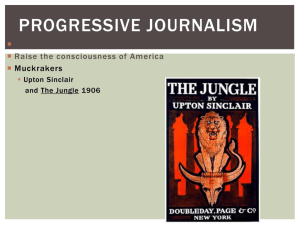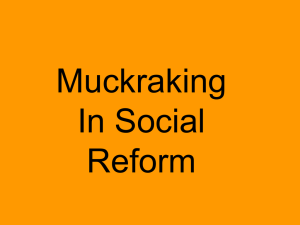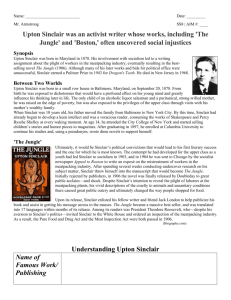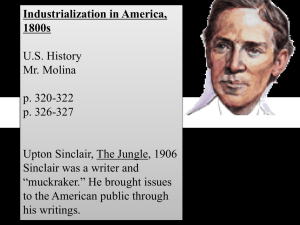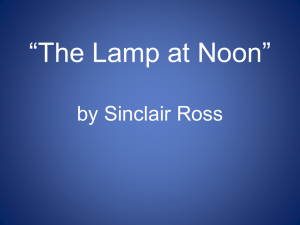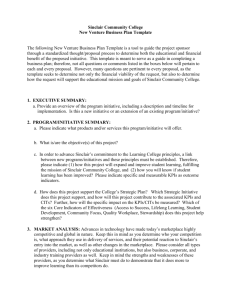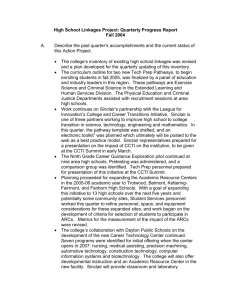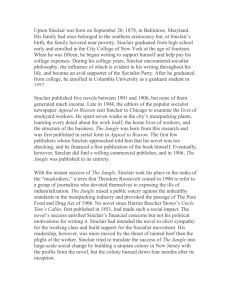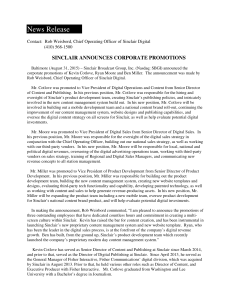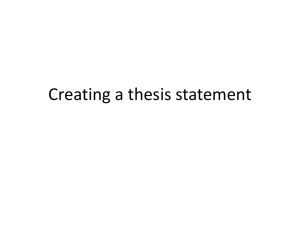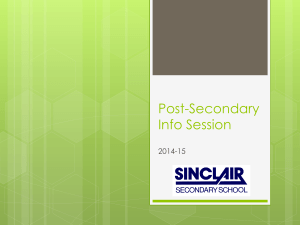Sample Essay - Jungle Synthesis
advertisement
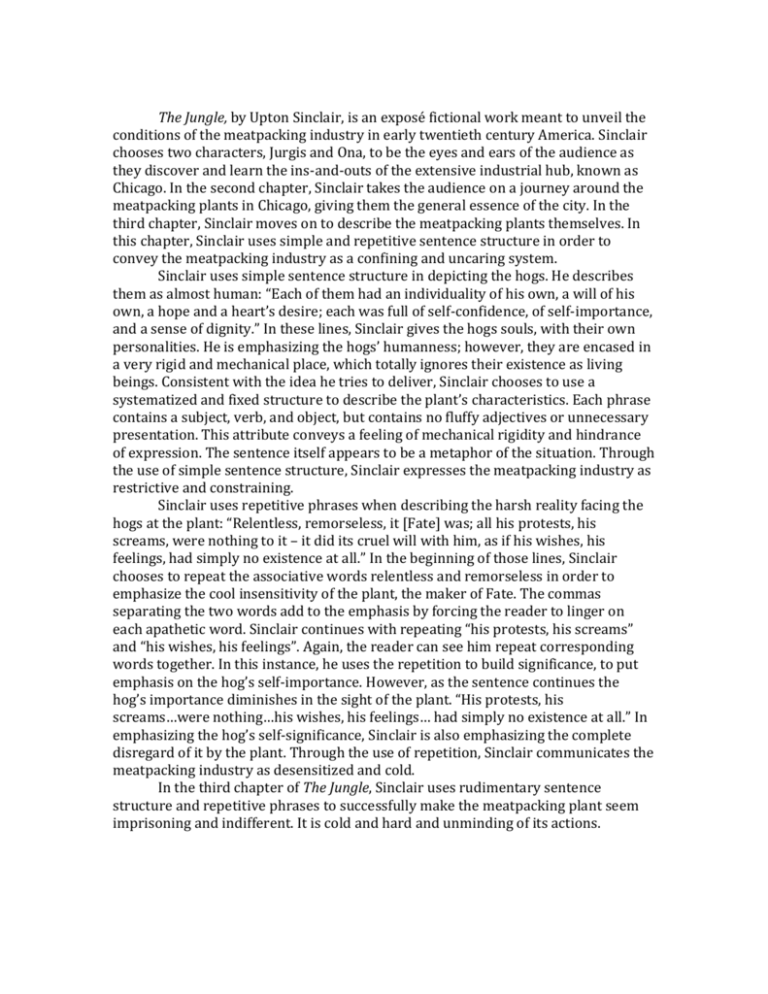
The Jungle, by Upton Sinclair, is an exposé fictional work meant to unveil the conditions of the meatpacking industry in early twentieth century America. Sinclair chooses two characters, Jurgis and Ona, to be the eyes and ears of the audience as they discover and learn the ins-and-outs of the extensive industrial hub, known as Chicago. In the second chapter, Sinclair takes the audience on a journey around the meatpacking plants in Chicago, giving them the general essence of the city. In the third chapter, Sinclair moves on to describe the meatpacking plants themselves. In this chapter, Sinclair uses simple and repetitive sentence structure in order to convey the meatpacking industry as a confining and uncaring system. Sinclair uses simple sentence structure in depicting the hogs. He describes them as almost human: “Each of them had an individuality of his own, a will of his own, a hope and a heart’s desire; each was full of self-confidence, of self-importance, and a sense of dignity.” In these lines, Sinclair gives the hogs souls, with their own personalities. He is emphasizing the hogs’ humanness; however, they are encased in a very rigid and mechanical place, which totally ignores their existence as living beings. Consistent with the idea he tries to deliver, Sinclair chooses to use a systematized and fixed structure to describe the plant’s characteristics. Each phrase contains a subject, verb, and object, but contains no fluffy adjectives or unnecessary presentation. This attribute conveys a feeling of mechanical rigidity and hindrance of expression. The sentence itself appears to be a metaphor of the situation. Through the use of simple sentence structure, Sinclair expresses the meatpacking industry as restrictive and constraining. Sinclair uses repetitive phrases when describing the harsh reality facing the hogs at the plant: “Relentless, remorseless, it [Fate] was; all his protests, his screams, were nothing to it – it did its cruel will with him, as if his wishes, his feelings, had simply no existence at all.” In the beginning of those lines, Sinclair chooses to repeat the associative words relentless and remorseless in order to emphasize the cool insensitivity of the plant, the maker of Fate. The commas separating the two words add to the emphasis by forcing the reader to linger on each apathetic word. Sinclair continues with repeating “his protests, his screams” and “his wishes, his feelings”. Again, the reader can see him repeat corresponding words together. In this instance, he uses the repetition to build significance, to put emphasis on the hog’s self-importance. However, as the sentence continues the hog’s importance diminishes in the sight of the plant. “His protests, his screams…were nothing…his wishes, his feelings… had simply no existence at all.” In emphasizing the hog’s self-significance, Sinclair is also emphasizing the complete disregard of it by the plant. Through the use of repetition, Sinclair communicates the meatpacking industry as desensitized and cold. In the third chapter of The Jungle, Sinclair uses rudimentary sentence structure and repetitive phrases to successfully make the meatpacking plant seem imprisoning and indifferent. It is cold and hard and unminding of its actions.

